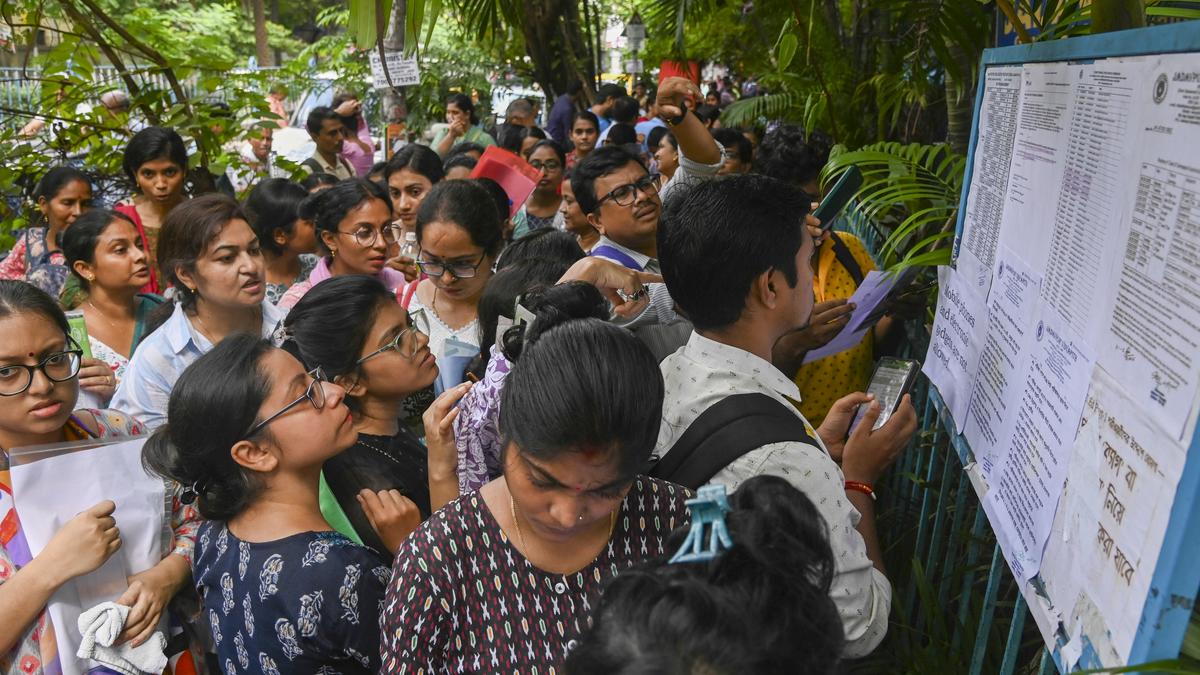Now Reading: West Bengal Conducts First Phase of Teacher Recruitment Exams Smoothly
-
01
West Bengal Conducts First Phase of Teacher Recruitment Exams Smoothly
West Bengal Conducts First Phase of Teacher Recruitment Exams Smoothly

Fast Summary
- The first phase of WBSSC’s teacher recruitment exam for classes IX and X was conducted on September 7, 2025.
- Approximately 91% of the 3.19 lakh registered candidates appeared, including over 31,000 outstation applicants.
- Elaborate security measures were implemented; candidates arrived two hours prior to the exam.
- Supreme Court annulled appointments of about 25,000 teachers in April due to irregularities in their recruitment from 2016.Unaffected teachers among them also participated but protested by wearing black clothes.
- The court prohibited “tainted” individuals from taking the new examination, and SSC published a list barring around 1,806 such candidates.
- WBSSC recently announced plans to fill a total of 35,726 teaching positions in state-run schools:
– 23,212 positions for classes IX & X
– 12,514 positions for classes XI & XII
- A second phase exam for assistant teacher posts is scheduled for September 14 at over 478 centers with around 2.46 lakh candidates expected.
Political Reactions:
- Trinamool Congress underscored trust among non-resident candidates appearing from states like Uttar Pradesh and Bihar due to perceived flaws in recruitment processes there.
- TMC spokesperson Kunal Ghosh criticized BJP-led states (“double-engine governments”) alleging stalled opportunities caused an influx into Bengal’s exams.
Indian Opinion Analysis
The recent WBSSC examinations represent a significant step toward restoring credibility following earlier controversies surrounding teacher recruitments that led to widespread cancellations ordained by India’s Supreme Court. Conducting exams at such scale-amid challenges posed by protests and scrutiny-signals commitment toward addressing these issues transparently.
Moreover, allowing outstation participants reinforces West Bengal’s inclusive stance on employment opportunities within state frameworks. However, political commentary surrounding inefficiencies in other states highlights the broader inter-state dynamics associated with competitive public sector job markets across India.
Looking ahead:
1) Implementing equitable and transparent hiring practices will be critical to setting lasting precedents post-Supreme Court intervention.2) The upcoming second phase might offer insights into whether logistical preparedness matches scale ambitions expressed publicly.
Such developments will likely influence public perception on governance efficiency within West Bengal while reflecting systemic trends nationwide across rulings aimed improving accountability mechanisms efficiently!






















